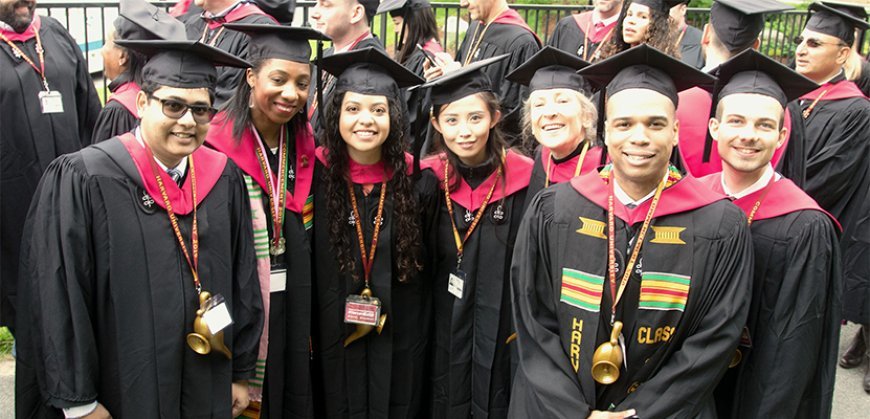Harvard Study Reveals Degrees That No Longer Ensure High Pay
Are college degrees losing their value? Discover why skills, adaptability, and lifelong learning now define success.

If the twentieth century defined success through credentials, the twenty-first is rewriting that equation. Harvard economists report that degrees once seen as gateways, particularly in business, technology, and humanities, have suffered a measurable drop in long-term financial return. The result is an educational landscape where institutional prestige alone no longer determines opportunity. Instead, success now belongs to graduates who fuse academic understanding with innovation, agility, and continuous upskilling, signaling that the true value of education lies in adaptability rather than tradition.
Harvard Study Shows Why Degree Returns Decline Over Time
Harvard labor economists David J. Deming and Kadeem Noray published pivotal research in 2020 demonstrating that returns on traditional applied degrees, including computer science, engineering, and business, diminish rapidly over an individual's career. Their study, which analyzed detailed job descriptions from nearly a universe of online job postings between 2007 and 2019, developed a model showing that career returns represent "a race between on-the-job learning and skill obsolescence".
The researchers found that "the earnings premium for graduates majoring in technology-intensive subjects declines rapidly over time as workers sort out of faster-changing occupations". This critical discovery reveals that while technology-intensive degrees boost initial earnings, that advantage quickly evaporates unless workers continuously acquire new skills and avoid placement in less technologically demanding roles as their knowledge becomes outdated.
Harsh Reality for Elite MBA Graduates
The decline has reached even the most prestigious academic programs. At Harvard Business School, 23% of MBA graduates from the spring 2024 class who sought employment were still without jobs three months after graduation, up sharply from 4% in 2021. Comparable trends appeared across other top institutions, with MIT Sloan’s unemployment rate rising from 4.1% to 15%, and schools such as Stanford, Wharton, NYU Stern, Chicago Booth, and Northwestern Kellogg also recording their weakest placement results in years.

Kristen Fitzpatrick, who oversees career development and alumni relations at Harvard Business School, acknowledged the stark reality: "We're not insulated from the challenges of the job market. Attending Harvard will not set you apart; possessing the right skills is essential".
10 College Degrees Losing Value in 2025
Based on Harvard research, labor market analysis, and 2025 employment data, these degrees show significant long-term value decline:
General Business Administration (MBA included): Rapid market saturation and shifting hiring preferences have softened long-term earnings and returns. The cooling white-collar labor market and reduced hiring by top firms like Amazon and McKinsey have made it increasingly difficult for even elite MBA graduates to secure positions quickly.
Computer Science: Despite high entry-level premiums, the field experiences rapid job skill obsolescence demanding constant upskilling. The earnings advantage diminishes quickly over time as technology evolves and workers sort out of faster-changing occupations.
Mechanical Engineering: Increasingly affected by automation and the trend toward offshore manufacturing and design work, reducing long-term domestic job prospects.
Accounting: Automation and the increasing deployment of Artificial Intelligence in audit and ledger tasks dramatically reduce long-term job growth prospects. AI tools can now process large volumes of transactions in minutes, completing tasks that would take human accountants’ hours or days.
Biochemistry: Provides narrow academic focus with limited pathways to high-paying jobs without significant advanced, specialized, or medical study.
Psychology (Undergraduate): Offers limited direct career pathways and generally requires extensive advanced study—Master's or Ph.D.—to realize professional returns.
English and Humanities: Fewer students are choosing English and humanities degrees today. Rising doubts about job opportunities and market value play a big role in this shift. Since 2013, The Harvard Crimson has recorded a sharp decline in humanities majors as more students focus on STEM and professional programs that promise better job security.
Sociology and Social Sciences: Similar to humanities, these fields face challenges with less direct job alignment and lower initial market integration.
History: Graduates typically see lower mid-career wage premiums compared to technical or vocationally-focused degrees.
Philosophy: While critical thinking skills are highly valued, they are less directly marketable for specific, high-paying career roles without further training.
Rise of Skill-Based Hiring
Harvard Business School's 2022 "Emerging Degree Reset" report documented a fundamental transformation in hiring practices. The study, which analyzed over 51 million job postings between 2017 and 2020, found that 46% of middle-skill and 31% of high-skill occupations experienced material degree resets, with employers dropping bachelor's degree requirements.
Critically, only 27% of these changes were "cyclical resets" responding to the pandemic. The majority (63%) represented "structural resets" that began before COVID-19, signaling measured and potentially permanent shifts in hiring practices. When employers drop degree requirements, they become more specific about skills in job postings, explicitly spelling out soft skills previously assumed to accompany college education—writing, communication, attention to detail.
Reason Why Traditional Degrees Are Losing Value
Rapid Skill Obsolescence: Technology-intensive fields experience accelerated knowledge decay. Without continuous professional development, initial training becomes outdated within years rather than decades.
Automation and AI Impact: Machine learning algorithms and AI tools are automating tasks across accounting, engineering, and even aspects of legal and medical work. Tax, accounting, and audit firms using generative AI jumped to 21% in 2025 from only 8% in 2024—the biggest increase in usage rates.
Humanities Enrollment Collapse: OECD statistics indicate a significant contraction in humanities enrollment, with 80% of member states recording declines over the previous decade. In the United States, the number of undergraduate humanities degrees awarded decreased by 24% from 2012 to 2022, reaching its lowest level in over twenty years at fewer than 200,000 graduates.
Employer Preference Evolution: Companies increasingly prioritize demonstrable skills over credentials. Harvard's research found that 95% of employers prefer hiring college graduates with skills enabling workplace innovation, while 93% agreed that critical thinking and complex problem-solving abilities matter more than undergraduate major.
Degrees and Skills Students Should Focus On

Does a degree alone still guarantee success? Harvard researchers say no. In fact, lasting achievement now depends on viewing education as a continuous process. The 2025 Student Choice analysis, which measured degree ROI over five years, highlights the disciplines performing best.
Engineering (326.6% ROI): Combining technical skills, analytical capabilities, and hands-on experience creates value across numerous industries.
Computer Science (310.3% ROI): Despite obsolescence challenges, strong initial returns combined with continuous upskilling maintain competitiveness.
Accounting (261.3% ROI): Despite AI automation concerns, strategic advisory roles combining accounting expertise with technology skills remain valuable.
Interdisciplinary and Hybrid Programs: In emerging job markets, hybrid education is taking center stage. Students pairing leadership studies with computer science gain both technical fluency and strategic skill. Those combining professional writing with business or cybercrime with digital forensics learn to bridge analytical insight with human creativity, qualities that define success beyond traditional academic boundaries.
Conclusion
Harvard's findings make clear that the future favors those who combine technical expertise with adaptability, creativity, and social intelligence, skills no single degree can guarantee. The World Economic Forum's 2025 Future of Jobs Report listed "AI and big data" as the fastest-growing skill requirement for 2025-2030, while simultaneously emphasizing that creative jobs remain protected because "AI can optimize but not create".
Employers surveyed for the College to Career Success project identified critical thinking as one of the "most valued but weakest" skills exhibited by candidates, with managers emphasizing that "these thinking skills transcend any field" and have grown considerably more important in recent decades.
The college degree hasn’t lost relevance; it has simply evolved. In the changing economic landscape, success depends less on where one studied and more on the ability to learn, unlearn, and relearn. The modern graduate must merge technical mastery with agility, balancing specialization with flexibility. In a labor market where even the Harvard label offers no security, lifelong learning and observable skill mastery form the new foundation of professional resilience.
FAQs
Are traditional college degrees still valuable?
Traditional degrees still provide foundational knowledge, but their long-term financial returns have declined, especially in fields like business, technology, and humanities. Success today depends on combining formal education with continuous skill development and adaptability.
Which degrees are losing market value?
According to Harvard research and 2025 employment data, degrees losing significant long-term value include General Business Administration (MBA), Computer Science, Mechanical Engineering, Accounting, Biochemistry, Psychology (undergraduate), English and Humanities, Sociology, History, and Philosophy.
What is the "Emerging Degree Reset"?
Harvard Business School's 2022 report identified a shift in hiring practices where employers are dropping degree requirements for many middle- and high-skill roles. This change emphasizes demonstrable skills like writing, communication, and problem-solving over formal credentials.
Which degrees still offer high returns?
Disciplines with strong ROI include Engineering (326.6%), Computer Science (310.3%), Nursing (280.9%), Accounting (261.3%), and interdisciplinary/hybrid programs that combine technical knowledge with strategic, creative, or leadership skills.
What are hybrid and interdisciplinary programs?
Hybrid programs combine multiple fields, such as leadership with computer science or professional writing with business. They develop both technical fluency and strategic or creative skills, preparing graduates for modern, evolving job markets.

 Admin
Admin